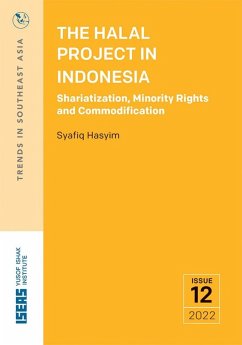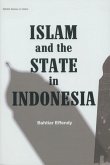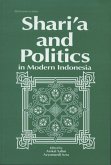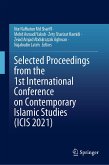The government of Indonesia in the second term of the Jokowi presidency has fully endorsed the concept of halal to become not only a sharia-driven state law but also an incentive for the advancement of the national economy and market. In addition, Jokowi wants Indonesia to become the centre of the global halal industry. In the history of Indonesian Islam, although the issue of halalness, being an unseparated part of Islamic doctrine, is not new, it had never been the role of the state to formalize it into state law prior to the legislation of State Law No. 33/2014 on Halal Legal Assurance. From the 1990s to 2014, halal matters including halal certification had been unofficially handled by the Council of Indonesian Ulama (MUI). Then, the Ministry of Religious Affairs (MORA) proposed that halal certification be officially handled by the government of Indonesia, not by Muslim organizations. The legislation of State Law No. 33/2014 reflects contestation between MUI and MORA regarding which institution should serve as the authority in certifying halal products. Promoting and advancing the halal project of Indonesia are related not only to commodification but also to theology. The choice of the Islamic method for determining halal can become a barrier to improving inclusive economic and market performance. The halal system in Indonesia follows the Shafi'i school of thought in Islamic law, which is very strict in defining the halalness of relevant products. However, a more flexible method of ijtihad (Islamic legal reasoning), which can accommodate the development of the halal market, is needed. Despite claims that the formalization of halalness through State Law No. 33/2014 accommodates universal and inclusive values, some religious minority groups worry that the law will shore up the shariatization agenda of the Muslim majority and marginalize religious minorities in terms of their lifestyle preferences. The legislation of State Law No. 33/2014 has allowed shariatization to be not merely an issue associated with political Islam, but one that through commodification is grounded in the everyday lives of Muslims and non-Muslims alike.
Dieser Download kann aus rechtlichen Gründen nur mit Rechnungsadresse in A, B, BG, CY, CZ, D, DK, EW, E, FIN, F, GR, HR, H, IRL, I, LT, L, LR, M, NL, PL, P, R, S, SLO, SK ausgeliefert werden.









